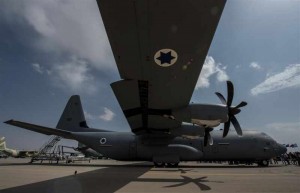 Moving cautiously in the face of an onslaught by Sunni militants advancing on Baghdad, Presidents Barack Obama is sending 300 military advisers to Iraq, but US would not be returning to a combat role there.
Moving cautiously in the face of an onslaught by Sunni militants advancing on Baghdad, Presidents Barack Obama is sending 300 military advisers to Iraq, but US would not be returning to a combat role there.
Under pressure to come to the aid of the embattled Iraq government, Obama announced Thursday he was sending advisers to Iraq to “assess how we can best train, advise and support Iraqi security forces” in dealing with Islamic State in Iraq and Syria (ISIS) militants.
“Going forward, we will be prepared to take targeted and precise military action if and when we determine that the situation on the ground requires it,” Obama said in a White House announcement after a meeting with his national security team
The options considered include the possibility of future air strikes.
American “armed forces will not be returning to combat in Iraq, but we will help Iraqis as they take the fight to terrorists who threaten the
Iraqi people, the region and American interests as well,” he said.
Suggesting that the situation in Iraq called for a political solution rather than a military one, Obama without putting it in so many words implicitly favoured removal of Prime Minister Nouri al-Maliki.
“Now, it’s not the place for the United States to choose Iraq’s leaders,” he said.
“It is clear, though, that only leaders that can govern with an inclusive agenda are going to be able to truly bring the Iraqi people together and help them through this crisis,” Obama said.
“Meanwhile, the United States will not pursue military options that support one sect inside of Iraq at the expense of another,” he said.
“There’s no military solution inside of Iraq, certainly not one that is led by the United States.”
“But there is an urgent need for an inclusive political process,” he said calling upon all, Iraqi leaders – Shia, Sunni, Kurds – to “rise above their differences and come together around a political plan for Iraq’s future.”
Obama also announced a series of steps designed to improve intelligence, surveillance and reconnaissance of the militant army that has taken several Iraqi cities and is threatening the capital in Baghdad.
Obama is also sending Secretary of State John Kerry to the region for diplomatic efforts that include demands for a more inclusive government in Iraq.
To keep Iraq from breaking into pieces in the face of the advance of ISIS militants, Kerry said the US was “open to discussions if there’s something constructive that can be contributed by Iran.”
“I think we need to go step by step and see what, in fact, might be a reality.” he said in an interview with Yahoo News.
Obama’s moves drew mixed reactions with Democratic House Minority Leader Nancy Pelosi favouring a “proceed cautiously” policy and critics like Republican senator John Cornyn dubbing Obama’s response “too little, too late’.
“Obama’s robust military moves – coupled with his pointed warning” to al-Maliki “to quell his country’s sectarian fires,” the New York Times said “opened a risky new chapter in the president’s reluctant engagement with Iraq.”
The Washington Post suggested the Obama “administration is straddling difficult politics in Iraq and at home.”
He was “seeking to answer Republican critics such as House Speaker John A. Boehner who claim that Obama is ‘taking a nap’ while Iraq crumbles and to assure political supporters that he is not opening a new front in the Middle East.”